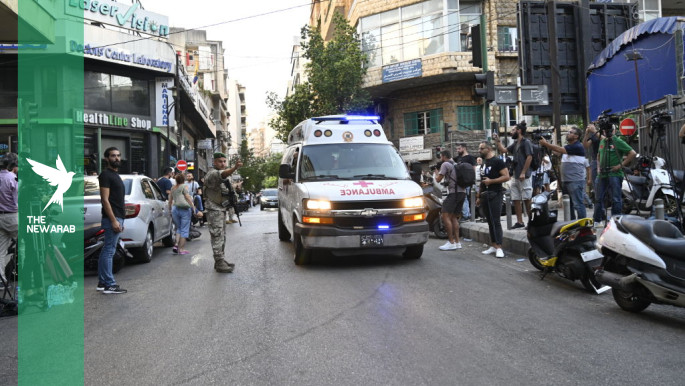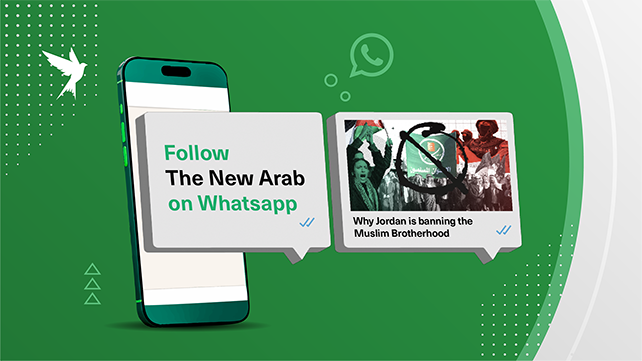In total, at least 42 people died and over 3,500 were wounded, with the highest tolls in southern Lebanon and Beirut’s southern suburbs [Getty]
On 17 September 2024, Lebanon was rocked by one of the most shocking and deadly incidents in its modern history. At around 3:30 p.m local time, videos flooded social media showing people collapsing in their homes, workplaces, and on busy streets as pagers suddenly exploded in their hands and pockets.
At first, many people assumed the footage was fake or filmed abroad. But it quickly became clear that thousands of AR–924 wireless pagers had detonated simultaneously across Lebanon and Syria, targeting people in cafés, grocery stores, crowded streets, homes, and even hospitals.
It soon emerged that Israel was behind the operation, which sought to cripple Hezbollah’s communications system across its military, political, and social networks. The attack paved the way for a broader war that erupted days later and lasted until November 2024.
Before the shock subsided, a second wave of blasts struck the next day, this time targeting walkie-talkies. Thousands of victims, including many women and children, lost fingers, eyes, and suffered devastating injuries leading to amputations.
According to Lebanon’s health ministry, 12 people, including two children and two healthcare workers, were killed and more than 2,750 were injured on the first day. Another 30 were killed and more than 750 were wounded the next day, including women, children, and non-combatant men.
In total, at least 42 people died and over 3,500 were wounded, with the highest tolls in southern Lebanon and Beirut’s southern suburbs.
One year on, survivors are still undergoing surgeries, families continue to mourn, and Lebanon lives with the scars of a mass attack that many say should be remembered not only as Israel’s biggest security coup against Hezbollah, but also as an indiscriminate act of collective punishment and a war crime for which justice has yet to be served.
Hezbollah’s deepest security breach
The pager blasts marked the most serious cyber and security breach in Hezbollah’s history, followed swiftly by assassinations of senior leaders, including secretary-general Hassan Nasrallah and his successor Hashem Safieddine.
In July, Nasrallah’s eventual successor, Naim Qassem, said investigations were still underway. He admitted that a “major gap” in procurement had allowed Israel to booby-trap the devices.
“[We] thought the purchase was disguised and untraceable, but it turned out the Israelis knew. The explosives were extraordinary and undetectable by standard checks, which was a very big blow,” he said.
Qassem also pointed to Israel’s long-running surveillance operations, from eavesdropping to years of drone mapping over Lebanon, which gave it “a huge information advantage”.
While denying evidence of wide human infiltration, he acknowledged Israel’s clear technological superiority.
‘A war that ended before it began’
Ghaleb Abu Zainab, a member of Hezbollah’s political council, told The New Arab’s sister site Al-Araby Al-Jadeed that the operation was “undoubtedly painful”, killing and injuring civilians as well as fighters.
“[Israel] wanted to inflict maximum harm and cause chaos among our ranks. We don’t know if there was infiltration or collusion, but all technical and electronic procedures were re-examined after the explosions,” he said.
Military analyst Omar Marabouni described the attack as unprecedented.
“Detonating more than 4,000 devices is a form of mass killing. No one has done this before,” he told TNA, calling it both a strategic surprise and a war crime.
He argued the blasts disrupted Hezbollah’s military and social structures, sidelining a large part of its cadres and creating serious operational gaps.
The second day’s walkie-talkie explosions, he added, paved the way for Israel’s intensified assassinations, culminating in the killings of Nasrallah and Safieddine.
Mohanad Hage Ali, the deputy director for research at the Malcolm H. Kerr Carnegie Middle East Center in Beirut, said the attack had a profound psychological impact.
“It showed an unimaginable level of penetration, shattering Hezbollah’s claims of professionalism. The fact that they couldn’t even securely procure pagers was a minimum requirement,” he said.
He stressed that the blasts bore all the hallmarks of a war crime.
“Explosions struck civilians as well as Hezbollah members, many not engaged in military work. It was indiscriminate,” he said.
Amnesty International reached a similar conclusion, branding the attacks “indiscriminate and therefore unlawful”.
Aya Majzoub, the UK-based NGO’s deputy director for the Middle East and North Africa, said: “Using explosive devices hidden in everyday communication tools to kill on this scale is unprecedented.
“Even if intended for military targets, blowing up thousands of devices without knowing who carried them shows flagrant disregard for the right to life and the laws of war.”


